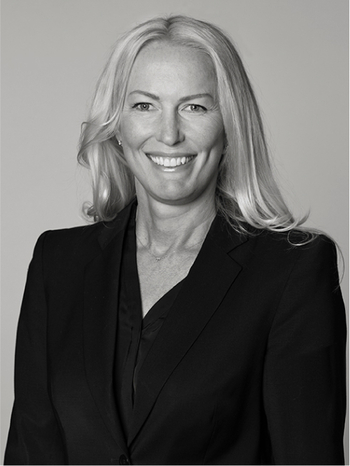Wilhelm Kåge
a stoneware figure of a 'dragon puppy', Gustavsberg, Sweden 1940's.
Green celadon glaze. Stamped GUSTAVSBERG KÅGE i. Height 12 cm.
The base with grinded glaze defect.
Provenance
The Collection of Hjalmar Olson (1902-1990), Gustavsberg.
Hjalmar Olson was president of Gustavsberg Porcelain Factory 1937-1968, and a Vice Chairman of LKAB 1962-1973. He was elected in 1942 as a member of the Academy of Engineering Sciences, where he was 2nd Vice Chairman from 1954 to 1956, and was appointed as the first honorary member in 1963. He received his degree in 1962 honorary doctor of technology at the Royal Institute of Technology in Stockholm.
As an engineer he studied modern porcelain industry in Germany. This took him to Gustavsberg porcelain factory already in 1929.
With his great interest in art and craft, he built up a private collection where quality was always of utmost importance. With help from close friends like Estrid Ericson, owner of Svenskt Tenn, he created his collection during the middle of the 1900's.
Designer
Wilhelm Kåge was a Swedish artist and ceramicist. Kåge is known for his ceramics for the Gustavsberg porcelain factory, where he was the artistic director from 1917 to 1949. Kåge studied from 1910 under Carl Wilhelmson at the Valand Academy of Art in Gothenburg and later under Johan Rohde in Copenhagen, where he became acquainted with Gösta Adrian-Nilsson (GAN) and grew closer to modern art. He studied graphic art in Munich and began his artistic career by designing posters for theatres and exhibitions, among other things. His connection with Gustavsberg was facilitated through the Swedish Society of Crafts and Design, as Gustavsberg needed new products for the Home Exhibition at Liljevalchs in 1917. He went on to design around thirty different dinnerware sets, as well as art pottery, colourful faience, stoneware, and various series of art pottery such as Carrara, Surrea, and Våga. In 1942, Kåge, together with Stig Lindberg, established the Gustavsberg Studio, which became a kind of aesthetic laboratory for art pottery.
At the Stockholm Exhibition in 1930, Kåge presented Gustavsberg's future sales success "Argenta," a series of art pottery primarily glazed in green but also in red, blue, brown, and celadon green, and decorated with various silver designs based on Kåge's sketches. Argenta became very popular and was produced well into the 1970s. The powerful stonewares "Farsta" were also presented at the Stockholm Exhibition and they became the ones closest to Kåge's heart and with which he continued to experiment throughout his life. The pieces improved over the years, and the most impressive and many of the most sought-after items were created by Kåge during the 1950s.















































